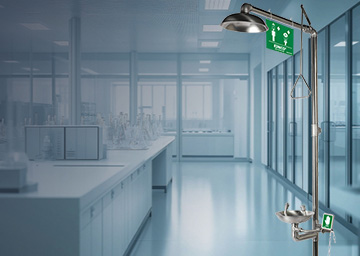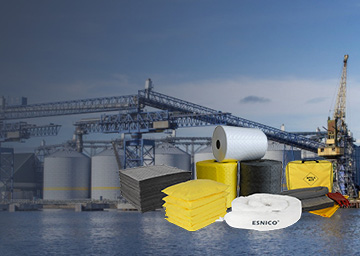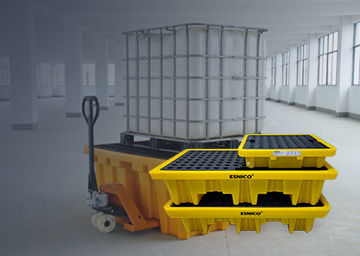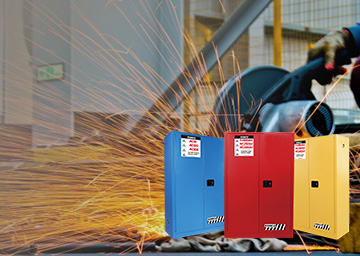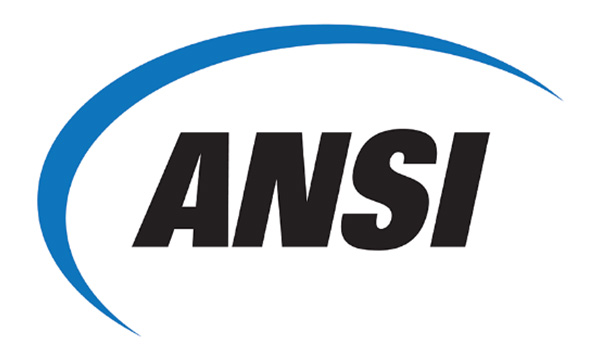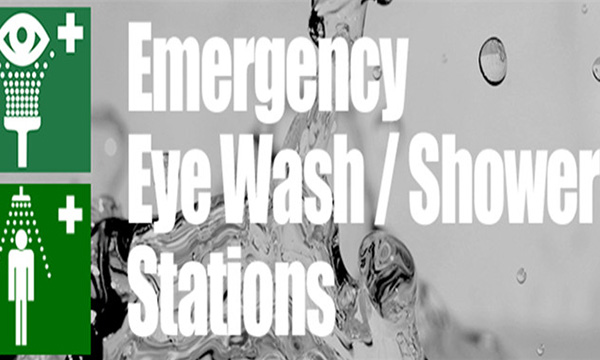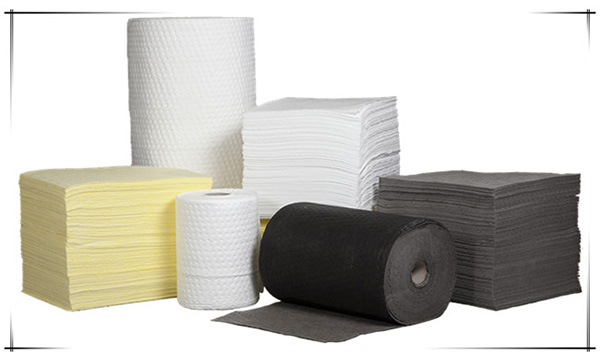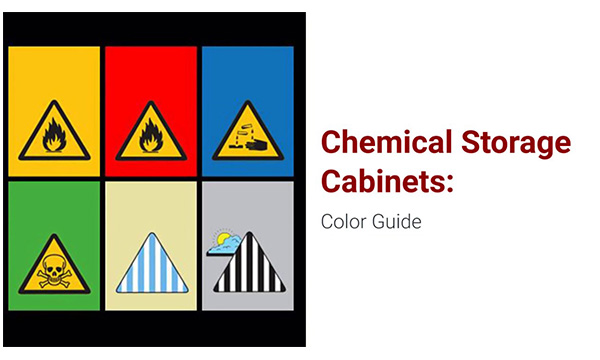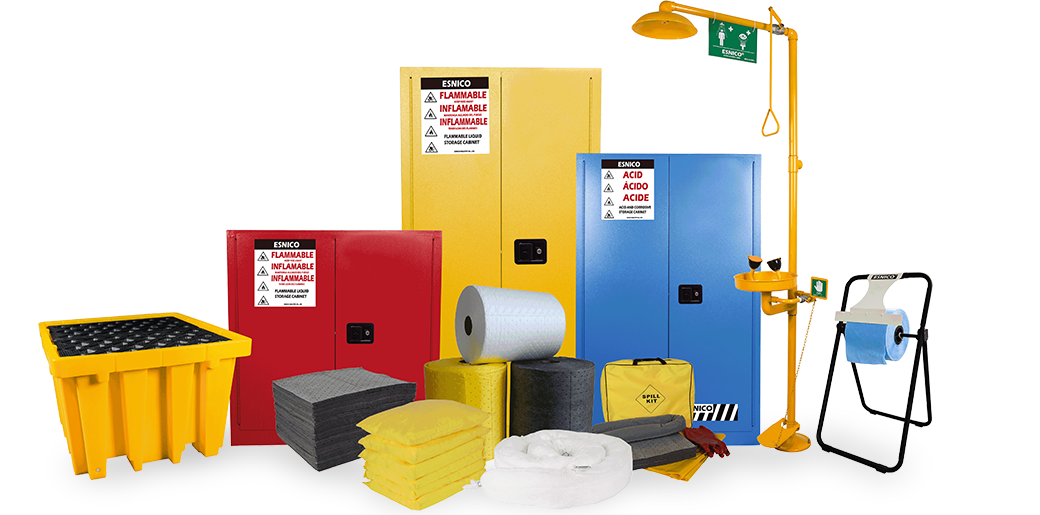ANSI/ISEA Z358.1 is an international consensus standard that helps users select, install, operate, and maintain emergency eyewash, eye/face wash, and shower equipment. It was issued in 1981 and revised in 1990, 1998, 2004, 2009, and again in 2014.
Installation / Location:
Must be accessible within 10-seconds of hazard, approximately 55-feet (consult a medical professional to determine the appropriate distance for harsh acids and caustics; high hazard = closer distance)
Must be located on the same level as the hazard
Path of travel must be free of obstructions—Appendix B5 clarifies that a step into an enclosure where emergency equipment is located is not considered an obstruction
The location must be well lit and identified with a highly visible sign
If shut-off valves are installed in the supply line for maintenance purposes, provisions must be made to prevent unauthorized shut-off
Temperature
Must deliver tepid flushing fluid—suggested temperature range of 60–100°F
Maintenance and Inspection
Activate plumbed units at least weekly to verify proper operation
Visually check self-contained units weekly to determine if flushing fluid needs to be changed or supplemented
Inspect annually for compliance with ANSI/ISEA Z358.1 performance requirements
Training
Instruct all employees in the location and proper use
Shower Requirements
There are two types of emergency showers:
Plumbed Shower: An emergency shower permanently connected to a continual source of potable water
Self-Contained Shower: A stand-alone shower that contains its own flushing fluid
Shower Requirements
There are two types of emergency showers:
Plumbed Shower: An emergency shower permanently connected to a continual source of potable water
Self-Contained Shower: A stand-alone shower that contains its own flushing fluid
Key emergency shower features and specifications include:
The hands-free valve activates in one second or less and remains open until manually closed
The plumbed unit delivers 20 gallons of water per minute for 15 minutes at 30 pounds per square inch pressure in the required pattern
The self-contained unit delivers 20 gallons of water per minute for 15 minutes in the required pattern
The height of the water column is between 82 and 96-inches above the surface on which the user stands
At 60 inches above the surface on which the user stands, the water pattern is at least 20 inches in diameter
The Center of the water pattern is at least 16 inches from any obstruction
Easily located, the accessible actuator is no more than 69 inches above the surface on which the user stands
If provided, the shower enclosure has a minimum diameter of 34 inches
Eyewash and Eye/Face Wash Station Requirements
There are two types of eyewash and eye/face wash stations:
Plumbed station: An eyewash unit permanently connected to a continual source of potable water
Gravity-fed (self-contained) station: A stand-alone eyewash device that contains its own flushing fluid that must be refilled or replaced after use
Key eyewash and eye/face wash station features and specifications include:
Eyewash and eye/face wash controlled, low-velocity flow rinses both eyes and is not injurious to the user
Water flow is sufficiently high to allow the user to hold eyes open while rinsing
Spray heads are protected from airborne contaminants - covers are removed by water flow
Plumbed eyewash delivers at least 0.4 gallons of water per minute at 30 pounds per square inch pressure for 15 minutes
Gravity-fed (self-contained) eyewash delivers at least 0.4 gallons of water per for 15 minutes
Plumbed eye/face wash delivers at least 3.0 gallons of water per minute at 30 pounds per square inch pressure for 15 minutes
Gravity-fed (self-contained) eye/face wash delivers at least 3.0 gallons of water per for 15 minutes
The water flow pattern is positioned between 33 and 53 inches from the surface on which the user stands and at least 6- inches from the wall or nearest obstruction
The valve actuator is easy to locate and readily accessible to the user
The unit washes both eyes simultaneously and covers the area indicated on test gauge at no more than 8 inches above spray heads

